
Belinda Peregrín Schüll, known mononymously as Belinda, is a Spanish-Mexican singer and actress. She has lived in Mexico City since a young age. In 2000, she started her career as a child actor at the age of 10 when she was cast as the lead role in the Mexican children's telenovela Amigos x siempre. She later appeared in Aventuras en el tiempo (2001) and Cómplices Al Rescate (2002).

Maria da Graça Xuxa Meneghel is a Brazilian TV host, actress, singer, and businesswoman. Known as the "queen of children", Xuxa built the largest Latin and Southern American children's entertainment empire. In the early 1990s, she presented television programs in Brazil, Argentina, Spain and the United States simultaneously, reaching around 100 million viewers daily. Xuxa has sold over 30 million copies of her records worldwide, which makes her the highest-selling Brazilian female singer. Her net worth was estimated at US$100 million in the early 1990s. Also successful as a businesswoman, she has the highest net worth of any Brazilian female entertainer, estimated at US$400 million.

Vicente Fernández Gómez was a Mexican mariachi singer, actor and film producer. Nicknamed "Chente", "El Charro de Huentitán", "El Ídolo de México", and "El Rey de la Música Ranchera", Fernández started his career as a busker, and went on to become a cultural icon, having recorded more than 100 albums and contributing to more than 30 films. His repertoire consisted of rancheras and other Mexican classics such as waltzes.
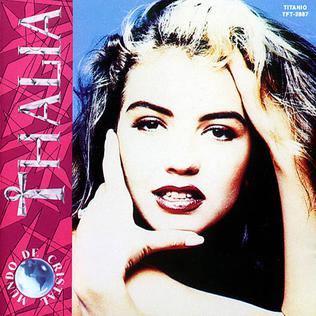
Mundo de Cristal is the second studio album by Mexican singer Thalía, released in Mexico on 26 September 1991, by Fonovisa Records. It was Thalía's second and last album to be produced by Alfredo Díaz Ordaz, who was her boyfriend at that time and died of hepatitis in 1993. Mundo de Cristal was certified 2× Gold in Mexico for shipments of 200,000 units. The most successful singles from the album were "Sudor", "En La Intimidad" and "Fuego Cruzado". To celebrate Thalía's 25th anniversary as a solo artist, this album is available in the digital platforms iTunes and Spotify since December 2014.

Nada Es Igual is the eleventh studio album by Mexican recording artist Luis Miguel. It was released by WEA Latina on 20 August 1996. The album has a musical style similar to his previous pop album Aries (1993) on which Miguel performs power ballads and R&B tunes. Recording took place at the Record Plant Studios in February 1996, with production handled by Miguel and his longtime associate Kiko Cibrian. Its songwriting was assisted by Cibrian, Rudy Pérez, and Alejandro Lerner. The album was promoted by three singles: "Dame", "Cómo Es Posible Que a Mi Lado", and "Que Tú Te Vas"; the former became the most successful single reaching number two and number one on the Billboard Hot Latin Songs and Latin Pop Songs charts, respectively. To further promote the recording, Miguel launched the Tour America 1996 where he performed in several South American countries.
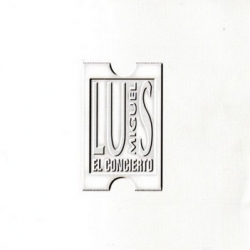
El Concierto is the second live album by Mexican recording artist Luis Miguel, released on 17 October 1995 by WEA Latina. It was recorded from his performances at the National Auditorium in Mexico and at the José Amalfitani Stadium in 1994 during his Segundo Romance Tour. The album features live covers of José Alfredo Jiménez's songs, which were previously unreleased. The first two songs were released as singles, the former reaching number one on the Billboard Hot Latin Songs chart and the latter peaking at number three on the same chart.
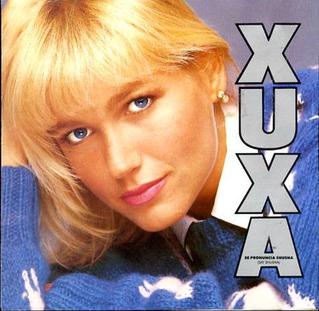
Xuxa is the sixth studio album and the first in the Spanish-language by Brazilian recording artist Xuxa. It was first released on November 18, 1989, in Argentina, Chile, Mexico and United States by the record company Som Livre, in the Latin America in January 1990, and in August of the same year in Europe.

Xuxa 2 is the eighth studio album and the second in Spanish language Brazilian recording artist Xuxa. The album was released on April 25, 1991, by BMG. The tracks did not undergo major changes, the instrumental sounded more pleasant and with a more Latin beat. The song "Crocki Crocki" is the only one that does not belong to the last two albums, but to Xegundo Xou da Xuxa (1987). The album was produced by Michael Sullivan and Paulo Massadas. The direction of the voice and the versions of the songs were made by Graciela Carballo.
Los Sultanes is an Argentine cumbia band formed in 1992 and comprising Jorge Kazmer (vocals), Jorge Valeggiani (drum), José Luis Navarro (keyboards), Adrián Lexicon (güiro), Gonzalo Rodríguez (bass) and Marcelo López (keyboards). The band is best known for its humorous songs dealing with gay and transgender-related topics.

"Vive El Verano" is a song by Mexican singer Paulina Rubio from her fifth studio album, Paulina (2000). It was released first as a promotional single on July 4, 1999, by Universal Spain, and then as the fifth single from the album in Europe by Universal Latino, Polydor, Muxxic and Mercury in June 9, 2001. The singer first recorded the vocals for the track in Madrid —which were later re-recorded for the 'album version' of the song— for a television Spanish show by Antena 3 titled of the same name, where Rubio hosted. The Latin pop song was written by Richard Daniel Roman and Ignacio Ballesteros, and was produced by Francisco Pellicer.

El Pequeño Mundo is the nineteenth studio album and the fourth in Spanish language album by Brazilian recording artist Xuxa Meneghel. It was released in October 1994 by Polygram.

Xuxa Dance is the 17th studio album and the fifth in Spanish by the Brazilian recording artist Xuxa. It was produced by Christian de Walden and released in December 1996 by PolyGram in Latin America and Mercury Records in the United States.

Solamente para Bajitos is the twenty-eighth studio album and the seventh Spanish language album by Brazilian recording artist Xuxa Meneghel. It was released February 12, 2005 by Sony BMG. This album marks the return of Xuxa to her Hispanic audience, since El Mundo és de los Dos (1999). It includes Spanish-language versions of tracks from her audiovisual series Xuxa só para Baixinhos.
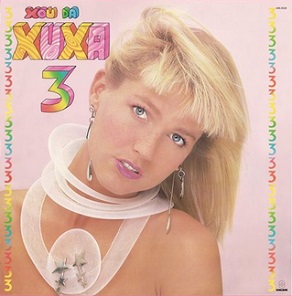
Xou da Xuxa 3 is the fourth studio album by Brazilian recording artist Xuxa. It was released on June 30, 1988, by Som Livre. Xuxa' best-selling album, has sold over 5 million copies in Brazil, making it the best-selling brazilian albums of all time, as well as the best-selling album by a female artist in the country.

Xou da Xuxa is the second studio album by Brazilian recording artist Xuxa. It was released on 6 August 1986 by Som Livre, alongside her television show on Globo. With over 2 million copies sold, the LP became the best-selling album in Brazil and South America.

Xuxa was the twelfth studio album by Brazilian recording artist Xuxa Meneghel. It was released in July 1993 by Som Livre. The album is composed only of songs that were left out of their previous albums.
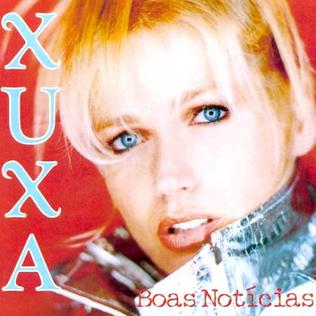
Boas Notícias is the twentieth studio album by Brazilian recording artist Xuxa Meneghel. It was released on September 22, 1997, by Som Livre.

Xuxa 2000 is the twenty-second studio album by Brazilian recording artist Xuxa Meneghel. It was released by Som Livre in 1999, being the last Xuxa studio album, before the series Só Para Baixinhos.

Xuxa só Para Baixinhos 3 – Country is the twenty-fifth studio album by Brazilian recording artist Xuxa, released on 31 August 2002 by Som Livre. It is the third album in the collection Só Para Baixinhos.
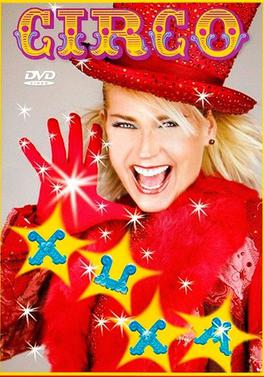
Xuxa só para Baixinhos 5 or Xuxa Circo is the twenty-seventh studio album by Brazilian recording artist Xuxa, released on 26 September 2004 by Som Livre. Its the fifth album in the Só Para Baixinhos collection.



















